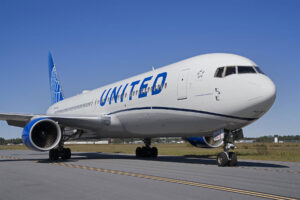Flight Protection Fail
#46
Join Date: Mar 2013
Posts: 209
I think I had the opposite situation happen. I thought I would miss my connecting flight on SYR-EWR-LHR due to delays. At SYR I had myself booked on the later EWR-LHR flight while protecting my original flight. I arrived at EWR at T-3 for the original flight so I assumed I had no chance of making it and just went straight to the later flight. When I tried to board, I found that (essentially) the GA for my original flight assumed I would make the connection so cancelled my BP for the later flight. There was exactly 1 no-show, otherwise I'd have been stranded overnight. So it works both ways with tight connections.
Or at least it's critically important to know the difference between protection and standby.
Or at least it's critically important to know the difference between protection and standby.
#47
Join Date: Jun 2007
Location: ORD
Programs: UA 1K 2006-2013
Posts: 334
So this is an easy one. When you know you are going to make the original flight, don't let the extra flight inventory stay in your record. Prior to boarding, go up to the main podium and ask them to cncl the redundant space so you don't appear to be a no-show on it. YOu shouldn't have your cake and eat it to, if you got your original flight, there is no reason for you to also hold space on a flight you will not take. Aloow that inventory to return to the next person on the waitlist, and pass it forward.

But more seriously, while I understand the courtesy to notify an agent that we are not going to need to use the alternative flight, let me suggest the following: The system needs to be improved, because it doesn't work. And by work, I mean work for the customer.
If we do make our original flight and don't use the alternative, there is absolutely no good reason for the return flight to be cancelled. Why on earth should the return be cancelled? The system should be smart enough to know -- especially since it's the original ticket -- that we were on an outbound flight. Is there a reason I'm not thinking of that the return segment should be cancelled?
Furthermore, the system should be designed in such a way that if we board the original flight (boarding passed scanned), the alternative flight (outbound) should be immediately released. So we don't have to notify someone because sometimes there isn't enough time to do so, especially with gate agents being extremely busy at boarding time. All the information is there and available in the computer.
This is simply another example in the long list of reasons the computer system used by United doesn't work.
#48
Join Date: Dec 2011
Location: Indianapolis
Programs: UA 1K, Marriott Gold, HH Gold, SPG Gold
Posts: 383
Furthermore, the system should be designed in such a way that if we board the original flight (boarding passed scanned), the alternative flight (outbound) should be immediately released. So we don't have to notify someone because sometimes there isn't enough time to do so, especially with gate agents being extremely busy at boarding time. All the information is there and available in the computer.
This is simply another example in the long list of reasons the computer system used by United doesn't work.
This is simply another example in the long list of reasons the computer system used by United doesn't work.
With a tight connection, I don't have time to fiddle with trying to find a free wireless signal for my iPad to see that I have been protected on a later flight. I can't use the mobile phone app because I don't have an iPhone and my company won't allow me to install the mobile app on my company-provided BBerry.




















